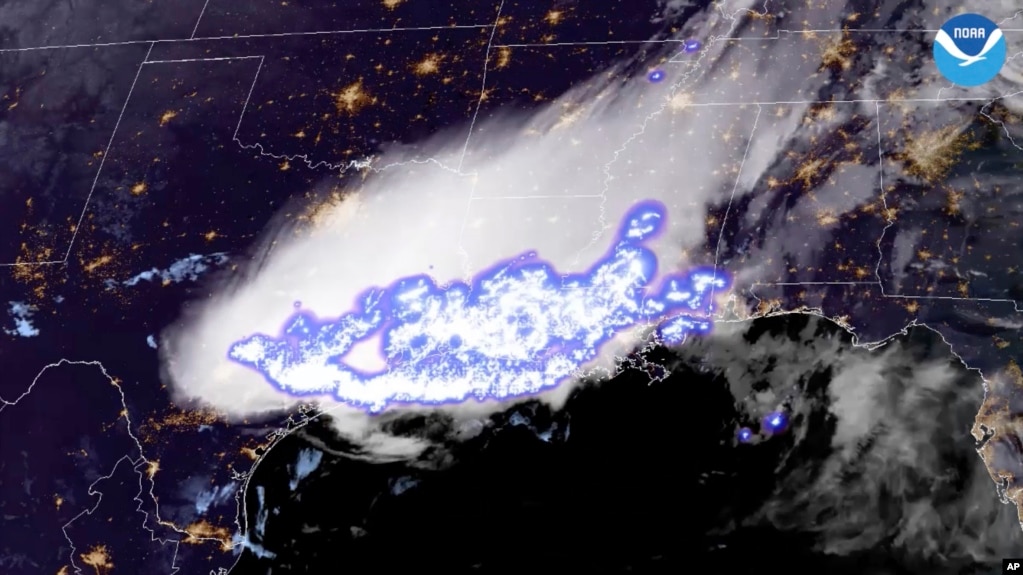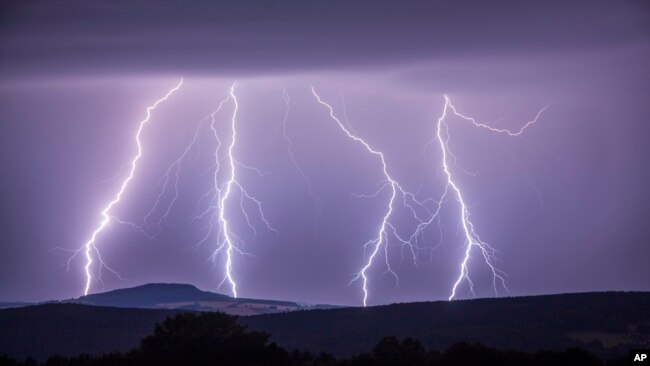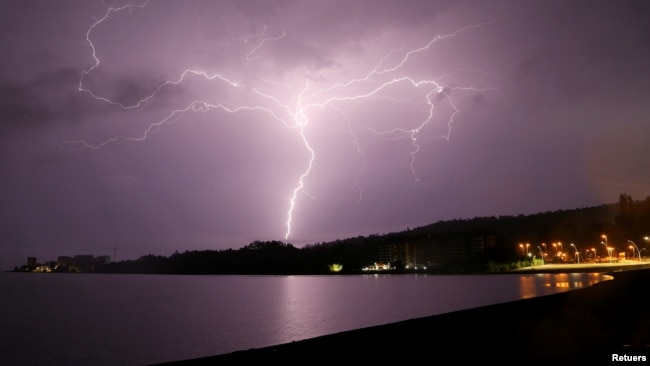
This satellite image provided by the National Oceanic and Atmospheric Administration shows a thunderstorm complex which was found to contain the longest single flash that covered a horizontal distance on record, at around 768 kilometers across parts of the southern United States.
A strike of lightning that stretched across three American states has been identified as the longest ever recorded.
The United Nations weather agency announced the finding on Tuesday.
The lightning strike, or bolt, was recorded on April 29, 2020, the World Meteorological Organization, WMO, said. It covered an area of 768 kilometers across the states of Texas, Louisiana and Mississippi.
The old record, set in 2018, was a lightning strike in Brazil that covered 709 kilometers.
WMO spokesperson Clare Nullis said the new record demonstrated the speed by which lightning can strike. “That trip by air(plane) would take a couple of hours and in this case the distance was covered in a matter of seconds,” Nullis told Reuters.

The new record was confirmed using new satellite tracking technology, the WMO said. The technology permits weather officials to effectively measure the size and duration of lightning bolts across the world.
The agency also announced another record, for the longest duration of a single bolt. That strike happened during a storm over Uruguay and northern Argentina on June 18, 2020. It lasted 17.1 seconds. The old record for duration was 16.7 seconds for a bolt that hit over northern Argentina on March 4, 2019.
Arizona State University’s Randall Cerveny is the chief of record confirmations for the WMO. He told The Associated Press that lightning normally does not stretch farther than 16 kilometers. It usually lasts less than a second.

Cerveny called the two lightning bolt records “extraordinary.” He noted that both record strikes happened between clouds hundreds of meters above the ground, so no one was in danger.
Cerveny said the areas where both strikes were recorded are two of only a few places on Earth that experience the kind of intense storms that can produce what scientists call “megaflashes.”
The WMO’s Nullis said that while the two record bolts never touched the ground, they should serve as a warning about the dangers of lightning. Hundreds of people die from getting struck by lightning each year.
“We reiterate our message: when thunder roars, when you see lightning – go indoors,” Nullis said.
I’m Bryan Lynn.
The Associated Press, Reuters and the World Meteorological Organization reported on this story. Bryan Lynn adapted the reports for VOA Learning English.
_____________________________________________
Words in This Story
track – v. to record the progress or development of something
duration – n. the amount of time that something lasts
reiterate – v. to say something again so that people take notice of it
thunder – n. the sound that follows a bolt of lightning that is caused by a sudden expansion of air
roar – n. a loud, deep sound
We want to hear from you. Write to us in the Comments section, and visit WWW.VOA-STORY.COM